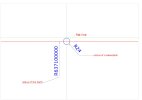Re: Is the Earth an enclosed technologically created world, and NOT a globe?
Indeed! I went fully through that process at least once, many years ago, when I was studying philosophy at university. I took everything I read very seriously. So when I came across Descartes' methodic doubt, and his arguments about how we can doubt of everything, including the existence of the material world (because we can always be dreaming, or we can be deceived by an evil spirit), then I had to agree from a logical point of view. On the other hand, I did not agree with his arguments to prove that the world does exist, after what he had said before. As a result, because at that point I knew that nothing was certain, I felt like I was floating in space with no sense, purpose nor direction. I couldn't live like that, of course, so after a few days I took the decision of placing a bet on believing that the world and everyone in it was real, because that was the most likely truth, even if I could never be 100% sure of it. But we don't have to! Strictly speaking, we can only be 100% sure in purely abstract fields, such as mathematics or logic, so we need to settle with 99% or less for everything else. And that is absolutely fine - even necessary. In fact, I find that there is beauty in allowing for a possibility, however small, that what we think we know is wrong, because that opens up the mind to new points of view. But that doesn't mean we should plunge into the void of cognitive nothingness, or that we should accept any extravagant theory without thinking critically about it.
Niall said:Regarding 'questioning everything', it's good to arrive at the point where your previous worldview breaks down and you face fundamental assumptions about what you know, or thought you knew. But it's also crucial to do this and then move on from it by reintegrating into the world as it is. You do this by accepting that even if you can never know for certain how or why something is the way it is, IT JUST IS, so work within the confines you find yourself in. If you get stuck in obsessing over whether or not the sky is really blue, you wind up closing your mind, not opening it up, and missing the rich (and important, assuming you're interested in progress) life lessons this 3D world offers you.
Indeed! I went fully through that process at least once, many years ago, when I was studying philosophy at university. I took everything I read very seriously. So when I came across Descartes' methodic doubt, and his arguments about how we can doubt of everything, including the existence of the material world (because we can always be dreaming, or we can be deceived by an evil spirit), then I had to agree from a logical point of view. On the other hand, I did not agree with his arguments to prove that the world does exist, after what he had said before. As a result, because at that point I knew that nothing was certain, I felt like I was floating in space with no sense, purpose nor direction. I couldn't live like that, of course, so after a few days I took the decision of placing a bet on believing that the world and everyone in it was real, because that was the most likely truth, even if I could never be 100% sure of it. But we don't have to! Strictly speaking, we can only be 100% sure in purely abstract fields, such as mathematics or logic, so we need to settle with 99% or less for everything else. And that is absolutely fine - even necessary. In fact, I find that there is beauty in allowing for a possibility, however small, that what we think we know is wrong, because that opens up the mind to new points of view. But that doesn't mean we should plunge into the void of cognitive nothingness, or that we should accept any extravagant theory without thinking critically about it.




